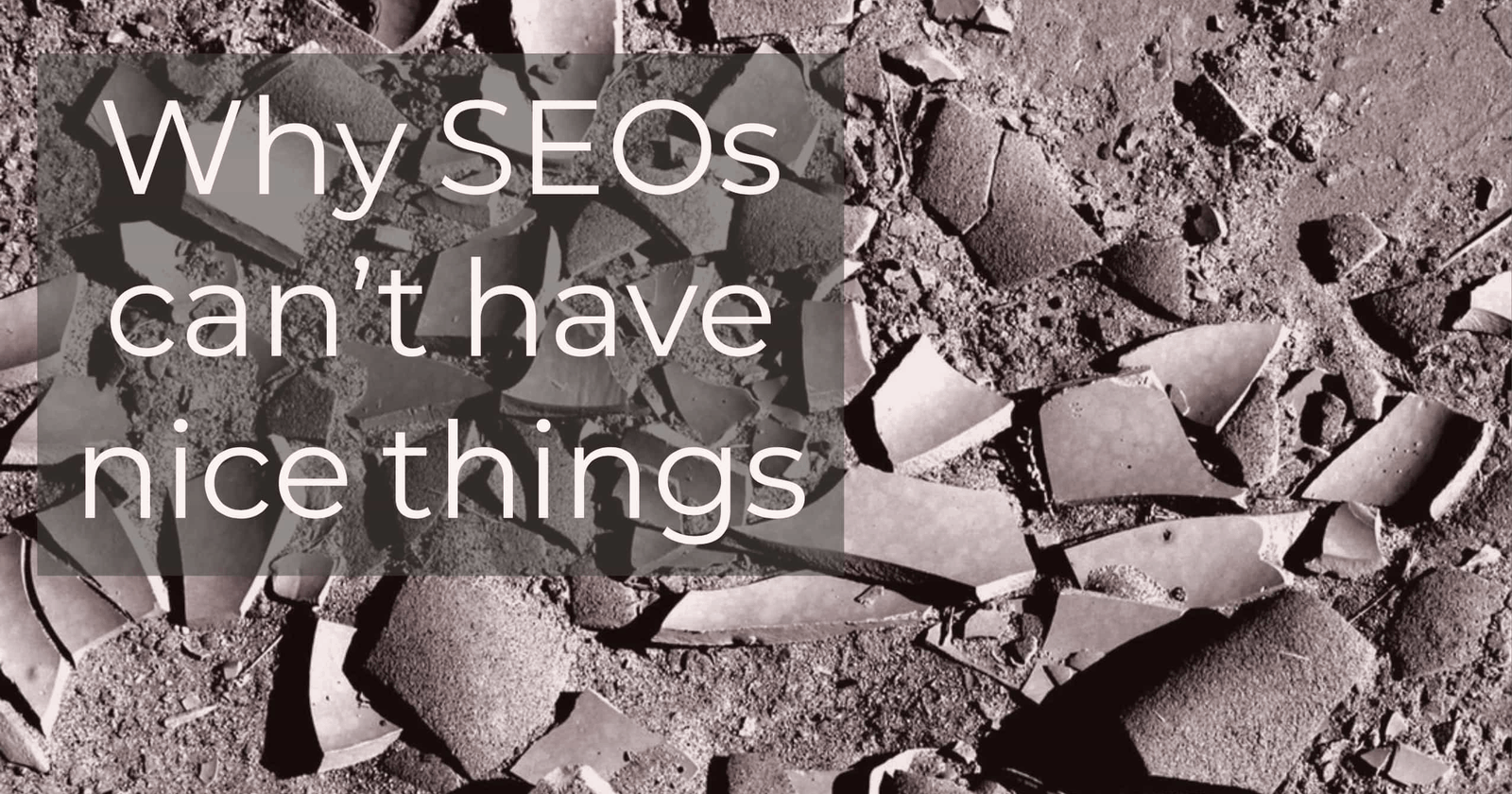Recently, a conversation with a client gave me pause.
“I’ve switched all my searches to Bing.” the client said. “Every time I search Google, I see how the SEOs have manipulated the results. I don’t trust Google to give me unbiased information anymore.”
I decided to keep my mouth shut.
This occurred just after President Trump accused Google of manipulating news results to highlight more left-leaning articles.
I wasn’t particularly motivated to get into a political discussion spurred by perceptions of Google.
But the conversation got me thinking.
As SEO professionals, we know that our “manipulation” or the SERPs is usually minimal.
Most of us are actually very careful to make sure that the content we optimize is a solid answer to the query.
Google is constantly working to rid their algorithm of spam and information that doesn’t offer helpful information related to consumer queries.
But Google is always playing whack-a-mole.
Every time a new way is found to exploit Google, it eventually gets outed – and every time it is abused.
Every. Single. Time.
Forbidden Fruit: Google ‘Hacks’ That SEOs Have Killed
I just searched for [SEO Hacks] on Google.
The second result is from a well-known “guru” who is somewhat controversial in SEO circles.
The article appears to be older, although it doesn’t have a date stamp.
The piece is focused on things SEO newbies can do to improve rankings.
Most of the advice in the article is pretty benign – and there is actually some good stuff in there.
But there is a glaringly outdated – or downright bad – recommendation in the article regarding what is frequently called “comment spam.”
A long time ago, before the proliferation of major social media platforms, blog comments were a great place to gain easy backlinks.
I can tell you these links are pretty much worthless these days.
If you can find a blog that still allows comments (many, including this publication, have turned them off because of spam and trolls), you’ll still see folks trying to game Google with horribly written comments.
On several of the blogs we run, I see hundreds of spam comments a month. Thank the lord for Akismet.
Recently, Google’s John Mueller stated that there is no truth to the fact that .edu links are more valuable than other links.
It’s impossible to know if this has always been the case.
SEO practitioners are notorious for grabbing ahold of half-truths and outright myths and pounding the techniques until Google cries uncle.
Is this Google crying uncle on .edu links? Did they ever have more value, or were they abused so much they became irrelevant?
We used to be able to get links and rankings from thousands of e-zine and thin content sites – most of which are now defunct.
We built a multi-million dollar economy for these content rags, and the Google destroyed it with a Penguin and a Panda.
And I would be bereft to mention the millions (perhaps billions?) of dollars that shady link sellers have made over the years.
Even though I haven’t bought a single link in five years, I’ve definitely spent several million dollars on links in my career.
And finally, I believe the days of the private blog network (PBN) are numbered.
I hear from PBN operators all the time – saying there is no way Google can detect a PBN if it is done right.
I call horse manure on that. Google can and will be able to detect most PBNs, and I bet that it happens soon.
If you have all your money tied up in PBN setup, I’d look to diversify. Soon.
The Psychology Behind SEO Madness
Why does every tactic that even slightly correlates with higher Google rankings seem to get abused?
I think the main reason the tactic du jour is abused by many SEO pros (especially those with less experience) is because they put too much emphasis on a simplified correlation comparison when looking at what appears to move the ranking needle.
Renowned social scientist Donald T. Campbell discussed the dangers of focusing on limited quantitative data points way back in 1979.
Campbell’s law, in a nutshell, states that the more any quantitative factor is used for social decision making, the more likely that factor is to be abused.
Campbell’s law is frequently used to cite reporting fallacies in education (standardized testing), law enforcement (crime statistics) and many other cases where a decision is made based upon a quantifiable performance indicator.
For example, if the crime rate is too high, just change what the definition of a crime is to make the numbers go down.
In big data, Campbell’s law is often cited as a precaution to those who would use a single KPI to make decisions.
Focusing on the rankings of a small number of keywords is a mistake.
Trust me, I get why this happens.
I can’t tell you how many times I have a prospect tell me they only care about a single keyword.
The client is convinced if they can rank for that one keyword, all of their business problems will go away.
According to Campbell’s law, once an SEO pro knows they are being evaluated on rankings, they will work to manipulate that one factor instead of focusing on what will really drive a business’s SEO success.
In my experience, more than half the time the keyword the client wants to rank for doesn’t provide the business they expect, even when they rank at the top.
In fact, ranking for the “money” keyword gets you eyeballs that aren’t ready to buy. They are too high in the buying funnel.
You’re better off diversifying the KPIs you use to determine success.
Part of this is educating clients and decision makers on the fallacy of rankings-focused KPIs.
The performance of an SEO provider should be judged on organic traffic, lead quality, and (in some cases) overall sales. Not rankings.
Focusing on rankings causes us to lose where we should be focusing
How do we become the answer to the answer to the buyer’s questions from initial interest to the close of the sale?
If SEO professionals will work this way, the industry will continue to show value.
And maybe the people in our industry will stop gravitating to the latest shiny object, which then requires them to sell snake oil because they have nothing else to sell once the shiny object becomes tarnished.
More SEO Resources:
- An Up-to-Date Guide on Good SEO Content vs. Bad SEO Content
- 9 Reasons You Might Need to Rethink Your SEO Approach
- How Ranking Factors Studies Damage the SEO Industry
Image Credit
Featured Image: Created by author, September 2018





![AI Overviews: We Reverse-Engineered Them So You Don't Have To [+ What You Need To Do Next]](https://www.searchenginejournal.com/wp-content/uploads/2025/04/sidebar1x-455.png)